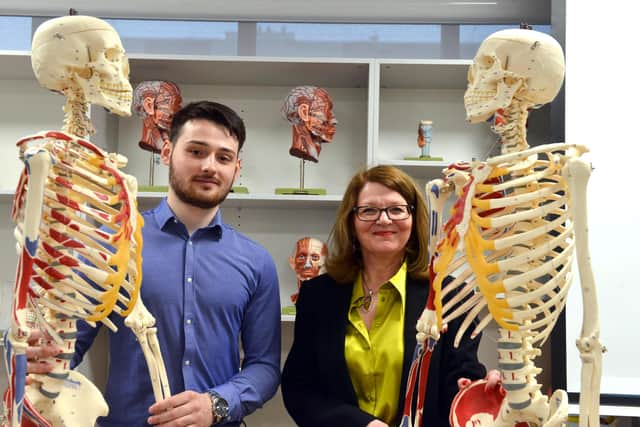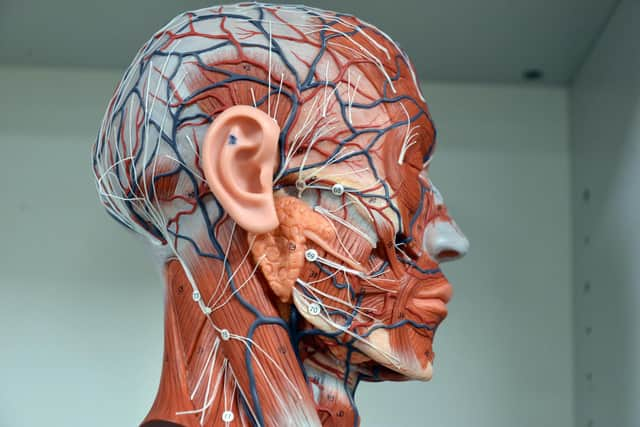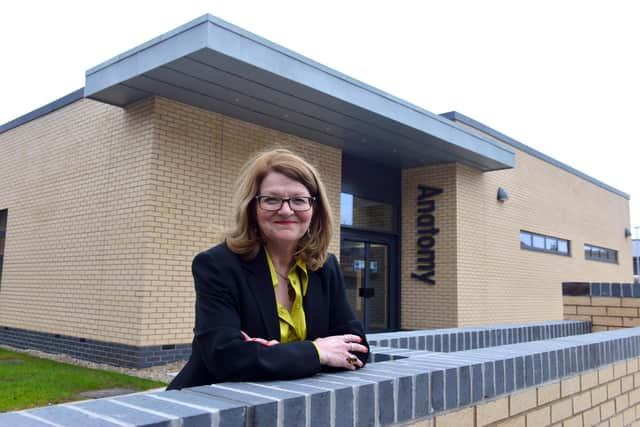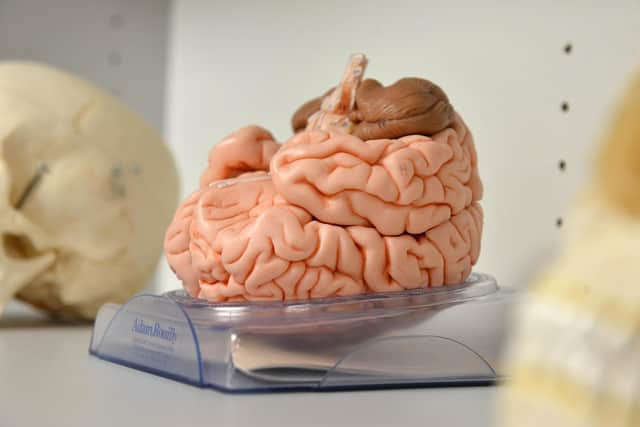Take a first look inside Sunderland University's new multi-million pound centre for cadaveric research
and live on Freeview channel 276
The centre for cadaveric research – the study of dead bodies – will provide priceless hands-on experience for the next generation of doctors, surgeons and other healthcare professionals, as well as benefiting many of the region’s current surgeons and surgical trainees.
It boasts a state-of-the-art learning environment along with a Quiet Room for visitors and students who need to take time out from the lab.
Advertisement
Hide AdAdvertisement
Hide AdThe centre has been established with the help of generous funding from the Sir James Knott Trust and the Garfield Weston Foundation.
Professor of Anatomy Debs Patten has been instrumental in supporting the design brief for the centre. She said cadaveric research was a critical part of medical training: “We want our healthcare professionals to be the best trained they can be and to have a really good understanding of the complexity of the human body and all that that entails,” she said.
"To be able to understand anatomy in this way will help patients.”
Staff would be instilling students with an understanding of the need to treat their subjects with respect and dignity, said Prof Patten.
Advertisement
Hide AdAdvertisement
Hide Ad"We, as professionals, are aware of the incredible gift of body donation and we make sure that our students are mindful of that gift and that they know the facts and recognise that,” she said.


“For us, dignity is incredibly important and that is something we instill in our students and all our visitors.
"We are acutely mindful of the gift donors give us.”
The centre was also a good way to prepare students for the sometimes difficult reality of a life in medicine: “This is often students’ first encounter with death,” said Prof Patten.
"To have that encounter with the support of professionals who are used to dealing with that is key.”


Advertisement
Hide AdAdvertisement
Hide AdSecond year medical student Aaron Dixon is excited at the prospect of carrying out first-hand anatomical learning: “All the models that we have been using have been excellent in terms of helping us to learn through our first year but it is not quite the same,” he said.
"To be able to actually see what real anatomy is like, rather than just to look at it on a screen or via a model, is a big difference.
"This year there is more focus on anatomical variation and to be able to have a look at different bodies is important because you never know who you are going to get through the door.


"I think that experience is preparation for the real-life scenarios you are going to get.”
Advertisement
Hide AdAdvertisement
Hide AdOpening the centre, Prof Neil Mortenson, President of the Royal College of Surgeons of England, said: “As anatomy is one of the key elements in a successful medical education, it is vital that we have centres like this throughout the UK in order to train and support surgeons of the future.”
A new memorial garden has also opened next to the centre, funded by university vice-chancellor Sir David Bell and wife Lady Louise in memory of his parents Marie and Robert.
“I think they would have been pleased to know that future generations will enjoy this special place within the University,” said Sir David.
Support your Echo and become a subscriber today.
Enjoy unlimited access to all of our news and sport, see fewer ads, experience faster load times, test your brain with daily puzzles and get access to exclusive newsletters.

